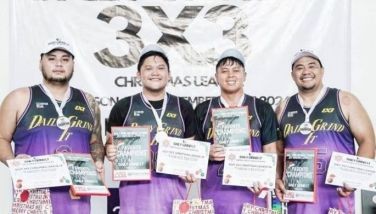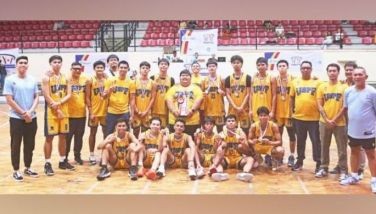Filipinos in Germany
“Freundschaft / Pagkakaibigan: Sixty years of friendship between Germany and the Philippines,” the book launched last Oct. 15 in Berlin, paints the general outlines of the relationship between the two countries. It has essays on business, diplomacy, education, history, politics, religion, and other aspects of national life.
Although the book contains some personal accounts, we could not include most of the comments and even some articles we solicited from Filipinos in Germany and Germans in the Philippines. The book had already gone beyond its intended number of pages.
Here are some of the comments that show how deep and personal the relationship is between the two countries:
Victoria Hernandez-Zimmermann writes, “There is much more to Germany than just football and Oktoberfest, or the love for grilled Schweinehaxe or assorted sausages and beer, and Mercedes Benz. I recognize their leading competence in many fields, their remarkable reliability, not only in their high quality standards in industrial production, but also in their outstanding discipline and dutiful punctuality. Still very Pinay at heart, however, I realize that it is only through my being truly Filipina, with our warm hospitality, ingenuity, and calmness born of Godly trust, can I contribute to German life. I chose to live in two worlds. We are really the Philippines in Germany.”
Victoria Villar-Demmer writes, “A precious perk of being a former officer/co-founder of a Germany-wide organization like the University of the Philippines Alumni Association Germany e.V. is being able to meet, befriend, and/or hobnob with illustrious Filipino VIPs, like our charming and well-accomplished current Philippine super lady-ambassador to Germany, H.E. Maria Cleofe Natividad, with whom we have been able to co-host, co-establish, and/or attend various charitable, civic, patriotic, cultural, and social events promoting our beautiful Philippines and/or proud-worthy kababayans.”
Jingky Lozano-Kühne writes, “Living and studying in Germany has been a big challenge for a ‘tropical creature’ like me who is used to the 365-day sunshine and the busy, noisy, lively neighborhood of Makati City. In addition to the language, food, and weather, almost everything in Germany is uniquely different from what I got used to back home. I learned that knocking on my desk after a lecture is a way of thanking the Professor. I learned that supermarkets and shops are usually closed on weekends. I also learned that everything has to be properly planned and scheduled ahead of time in Germany. I have always considered myself as a planner, but I learned in Germany what planning really means. The Germans plan not just to achieve what is expected, but also to prepare for the unexpected. I think one of the secrets of Germany’s success is that they really take seriously the old scout’s motto – ‘Laging handa!’ (Be prepared!). Indeed, a nice motto to always remember and put into practice.”
Lilian Coronel writes, “I teach German as a Foreign/Second Language to other foreigners (there are mandatory German courses for those who want to stay in Germany to work or study or be with their German partner). The most important lesson I learned is this: Having that perfect blend of integration and cultural integrity makes living in a foreign country worthwhile and visiting home a joy.”
Klaus Hartung and Jane R. Hartung write, “The Philippines is a country of culture and art, of dancing and singing, of nature and beauty, of beaches and merriment, despite or especially because of the historic past with different influences from several cultures, religions, and countries from Asia and the Western world.”
Marilu Rodriguez Scheich writes, “I learned the language first and foremost and along the way adapted many German traits like punctuality, being precise, being direct, and many other formalities. I collected many German friends who I still have as friends till today. Another German characteristic that I honor – they are diehard friends when they admit you into their friendship. Very helpful, straightforward, and obedient. My love for cooking and travel gave me the opportunity to know the regions all over Germany. Their food came hand in hand with their provincial traditions and, till this day, it is still full of nice surprises. Germany is full of traditions that they express in fiestas (Fest) and thru these traditions, I learned to differentiate its regions and specially its people. They tend to be formal, but in reality, they are a very helpful, fun-loving folk. They always accepted me and were always curious about the Philippines, and many of them knew something somehow about my country. I am now a German, I feel secure, I am well taken care of by the government.”
I would like to express my deep appreciation to the Filipino community in Germany, particularly to the University of the Philippines Alumni Association Germany, for hosting publisher Marily Y. Orosa and me on various occasions. In my speech, I said that I had enough material for a Volume Two of the commemorative book. That is obviously going to be yet another of my book projects.
- Latest



























